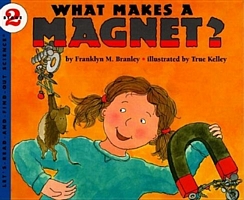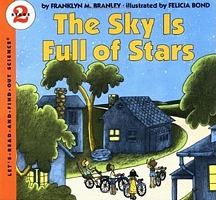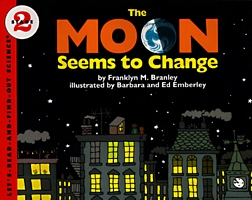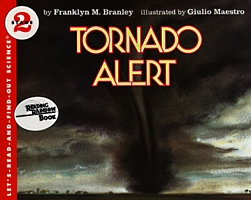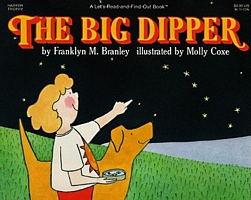- Welcome to FictionDB, Guest
- | My Account
- | Help

Franklyn Mansfield Branley
Book List in Order: 11 titles
-
The Sky Is Full of Stars
- Mar-1983
- / General Fiction
-
"
Read and find out about stars and stargazing in this colorfully illustrated nonfiction picture book.
Young stargazers learn about different star colors and brightnesses, how to locate major constellations, and how to make mini planetariums ...
-
The Moon Seems to Change
- Aug-1987
- / General Fiction
-
Can you see the moon?
Does it look like a big round ball? Or is it just a sliver of light in the sky? The moon seems to change. But it doesn't really. The moon revolves around the Earth. It takes about four weeks to make the journey, and as ...
-
Tornado Alert: Stage 2
- Mar-1990
- / General Fiction
-
‘Branley explains these powerful storms in simple terms young children can understand. He describes the funnel cloud and how it forms and [tells] what to do during a tornado. The book ends on a comfortable note, that the idea is not to panic but to...
-
-
The Big Dipper
- Apr-1991
- / General Fiction
-
Are the stars out tonight?
If they are, chances are you'll be able to spot the Big Dipper. The Big Dipper is one of the easiest constellations to recognize and this Let's-Read-and-Find-Out Science book will help young stargazers find it, and...
-
What Makes a Magnet?
- Jul-1996
- / General Fiction
-
Will a magnet pick up a paper clip or a feather? In this book veteran author Franklyn Branley explains the properties and behavior of magnets. The charming illustrations will entertain readers as they discover for themselves what makes a magnet. Hand...
-
-
Floating in Space
- Jan-1998
- / General Fiction
-
Have you ever dreamed of being an astronaut? Wondered what it might be like to see the sun set sixteen times in one day?Open this book and be transported on an information-packed voyage aboard the space shuttle. True Kelley’s kid-friendly diagrams ...
-
Flash, Crash, Rumble, and Roll
‘In this revised edition, Branley offers a clear, effective explanation of thunderstorms for younger readers. The Emberleys’ bright, well-labeled pictures crystallize the explanation. . . . A useful replacement suggestion, not only for its inform...
-
-
Sunshine Makes the Seasons
Are there reasons for the seasons?
It all starts with the sun. The sun shines on the Earth and keeps it warm.We have day and night because the Earth spins on its axis and we spend part of each day facing the sun and part of th...
-
What the Moon Is Like
‘NASA photographs and information gathered by the Apollo space missions are incorporated here along with a description of how the moon’s composition, terrain, and atmosphere differ from the Earth’s. With simple lines and few colors, Kelley’s ...
